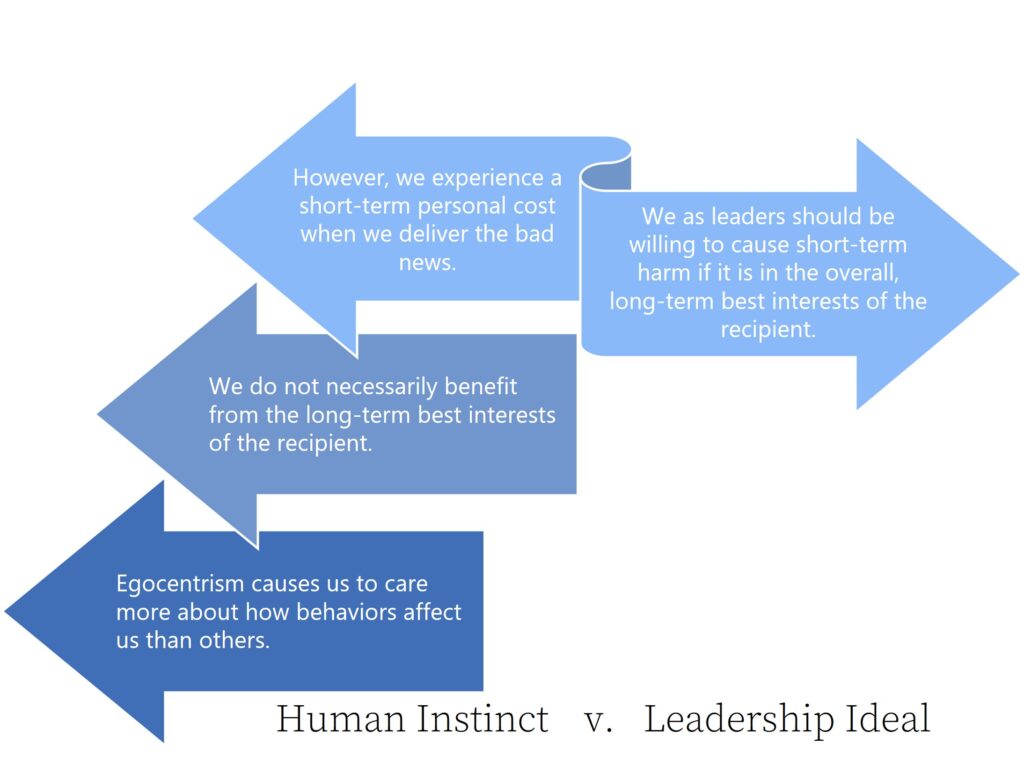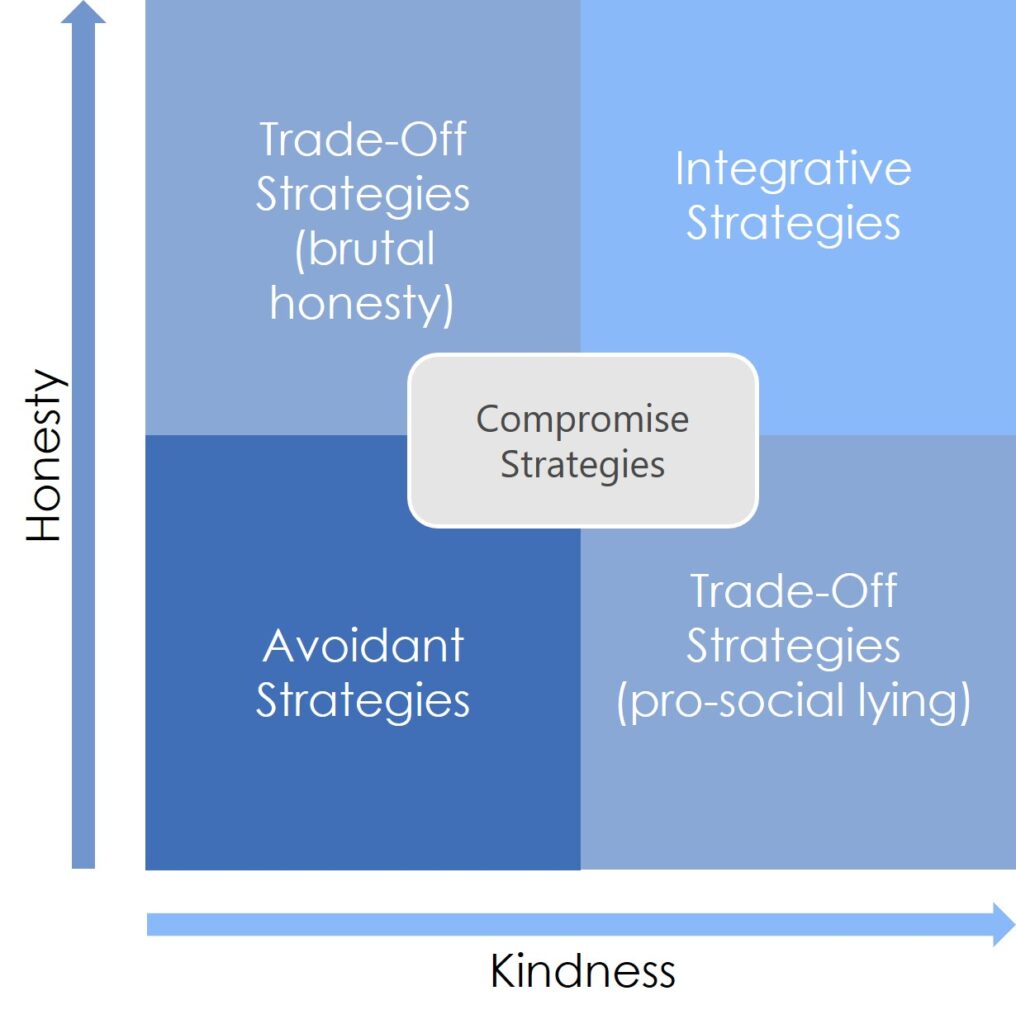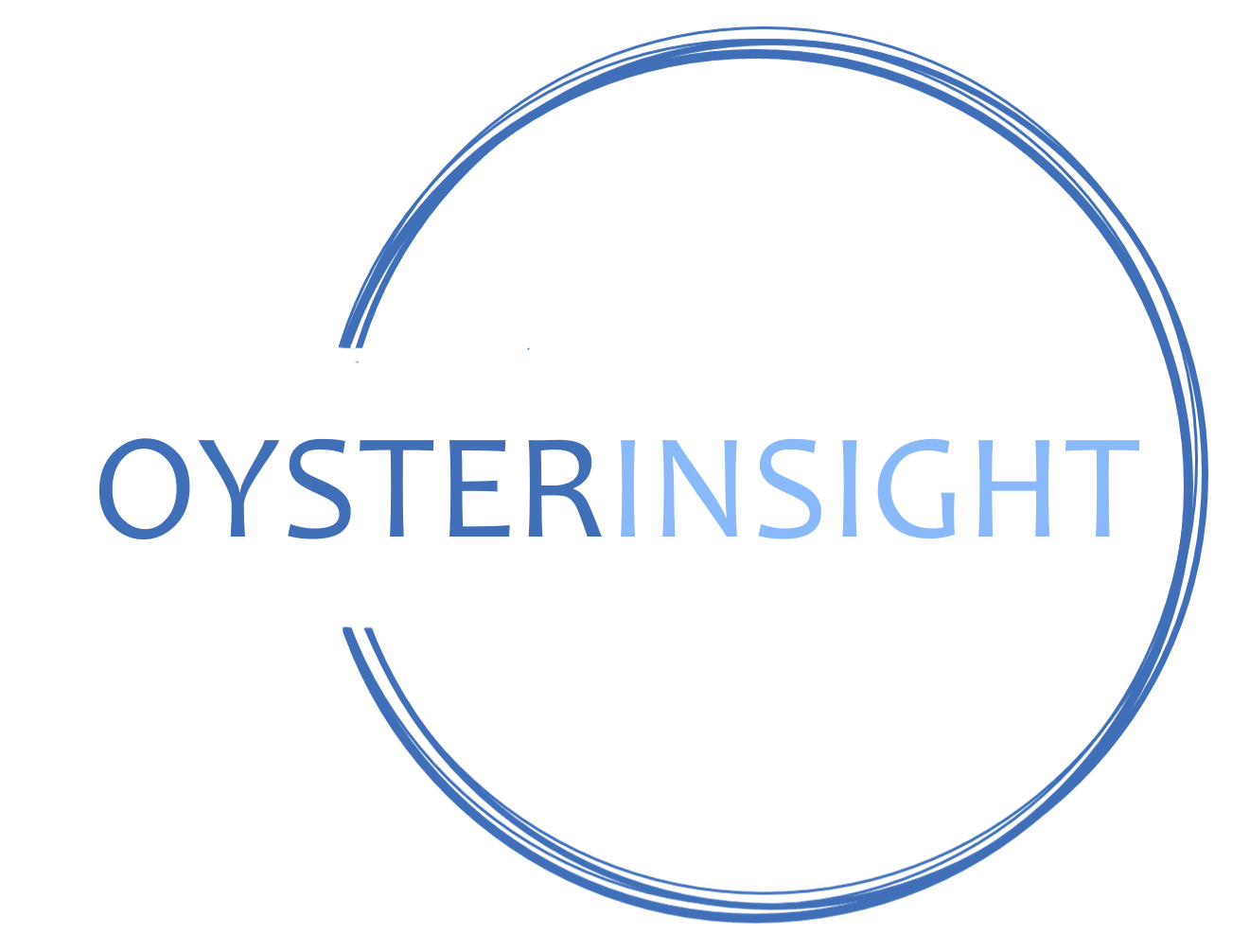Honest Vs. Kind
A friend of mine has decided it’s better to have a chillier relationship with someone rather than giving them the straight story on why they don’t enjoy their company. They think it is kinder.
When you are in the role of leader (or parent), giving feedback and bad news is part of the job. However, some, like my friend, get conflicted in what they perceive as a moral conflict between being honest or being kind. In fact, there is a way to be both honest and kind – but it goes against our human nature.
Research shows that the conflict is not a moral conflct, but rather a conflict between human nature (our egocentrism) and our ideal leadership behaviors.

- We as leaders should be willing to cause short-term harm if it is in the overall, long-term best interests of the recipient.
- However, we experience a short-term personal cost when we deliver the bad news.
- And, we do not necessarily benefit from the long-term best interests of the recipient.
- Egocentrism causes us to care more about how behaviors affect us than others.
And so, facing personal cost with limited, if any, personal benefit, we rationalize why we should deliver bad news or give negative feedback, using morality as an excuse. Understanding that the conflict is actually between human instinct and our leadership ideal can give us more awareness and self-empathy in why we struggle with difficult communications.
With this awareness, we can see why we find many other options.
Dodging the Bullet
Avoidance Strategies
Avoidance strategies appeal to our human nature by not causing the leader harm. However, they are counter-productive in many ways.
- Avoidance does nothing to promote a beneficial result for the recipient.
- No informational benefits are delivered.
- Everyone is deprived of the benefits that come from sensitive communications (hope, comfort, and intimacy).
- Leaders get no feedback on the reaction to difficult conversations or practice in having difficult conversations. They stay in a negative loop on both the value of difficult conversations and the skill of having them.

Trade-Off Strategies
When leaders resort to trade-off strategies when they perceive being kind versus honest as a moral conflict. Studies have shown that when we perceive situations as ethical challenges, it taxes our cognitive resources and narrows our thinking. In moral situations, we perceive we have fewer choices and are less creative in developing solutions. And so we gravitate toward the extremes. In this case, leaders gravitate toward brutal honesty (“You are not cut out for sales,”) or pro social lying (“You are getting better, just keep trying.”).
Neither of these works. Both approaches actually sabotage your goals.
Without kindness, brutal honesty comes across as mean and unkind, and can be taken personally. It can also make the recipient question the motives of their leader and doubt the honesty of the statement.
Prosocial lying can lead to unrealistic expectations on the part of the recipient. Eventually, when the lies are detected, it leads to resentment and distrust.
Compromise Strategies
Compromise strategies also appeal to our human nature to avoid personal harm. These stratgies include paltering and misleading, dodging the truth and deflecting. The leader may distinguish ethically between paltering, using truthful statements to mislead, and lying. However, the end result is the same in that the recipient feels misled and they do not distinguish between the two. Dodging and deflecting, while also justified by the leader, compromise both honesty and benevolence. Compromise strategies fail to deliver accurate information that could improve the recipient’s long-term welfare. And, like the trade-off strategies, these can acutally sabotage your goals.
Honest AND Kind
Leaders can deliver negative information truthfully and directly, and also use language and strategies that actually lead to long-term benefits. By integrating honesty and kindness, the maximum benefits are achieved for the organization and the recipient.
- Relationships and projects can be salvaged.
- Relationships can be strengthened.
- Trust can be developed, leading to higher functioning relationships.
- Higher functioning relationships take more risks, solve problems more creatively, and are more innovative.
- Leaders can refine their communications skills, becoming more confident in their abilities to have difficult conversations. This leads to smaller conversations occurring more frequently, earlier in the process.
- Turnover costs can be reduced.



